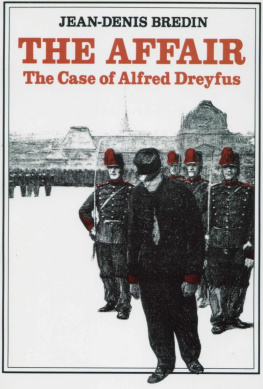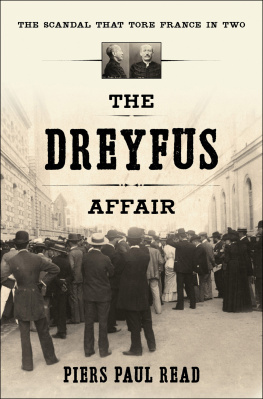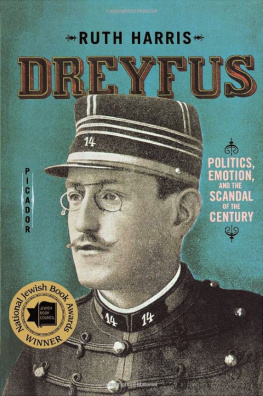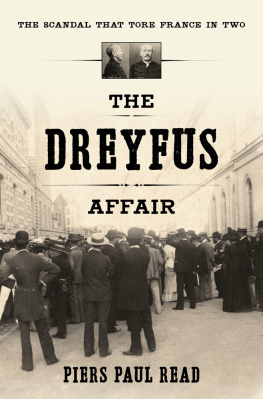Benjamin F. Martin - The Hypocrisy of Justice in the Belle Epoque
Here you can read online Benjamin F. Martin - The Hypocrisy of Justice in the Belle Epoque full text of the book (entire story) in english for free. Download pdf and epub, get meaning, cover and reviews about this ebook. City: Baton Rouge, year: 1999, publisher: LSU Press, genre: Detective and thriller. Description of the work, (preface) as well as reviews are available. Best literature library LitArk.com created for fans of good reading and offers a wide selection of genres:
Romance novel
Science fiction
Adventure
Detective
Science
History
Home and family
Prose
Art
Politics
Computer
Non-fiction
Religion
Business
Children
Humor
Choose a favorite category and find really read worthwhile books. Enjoy immersion in the world of imagination, feel the emotions of the characters or learn something new for yourself, make an fascinating discovery.

- Book:The Hypocrisy of Justice in the Belle Epoque
- Author:
- Publisher:LSU Press
- Genre:
- Year:1999
- City:Baton Rouge
- Rating:3 / 5
- Favourites:Add to favourites
- Your mark:
The Hypocrisy of Justice in the Belle Epoque: summary, description and annotation
We offer to read an annotation, description, summary or preface (depends on what the author of the book "The Hypocrisy of Justice in the Belle Epoque" wrote himself). If you haven't found the necessary information about the book — write in the comments, we will try to find it.
The Dreyfus Affair of the 1890s and the violent controversies that surrounded it appeared to pass two very different judgments on the France of the Third Republic. The outcome o the trial -- Captain Dreyfus convicted without guilt and the real traitor acquitted despite guilt -- demonstrated without question the extraordinary hypocrisy of the military justice system. But the furor raised by Dreyfus conviction and the agitation for his release suggested that the injustice of the courts verdict was uncharacteristic of French society; that for France as a nation the rendering of justice was paramount, even at the expense of disgracing both the military and a conspiring government.
In The Hypocrisy of Justice in the Belle Epoque, Benjamin Martin examines the events of three sensational criminal cases to reveal that the willful mangling of justice that occurred in the Dreyfus trial was far from rare in the Third Republic France. He finds, in fact, that justice in the Belle Epoque was hypocritical in the extreme, with the outcome of trials easily tainted by the power and influence of politics, money, and illicit sex. At times, justice deviated so far from the ideal that its goal was not the strict application of the law or even the discovery of the truth, but rather the imposition of a system of rewards and punishments meted out in accordance with a capricious vision of social utility.
Martin begins with the case of Marguerite Steinheil, the wife of an artist of only middling talent. A strikingly beautiful woman, she presided over a famous salon and was the lover of influential politicians. When she was tried for the brutal murders of her husband and her mother, Marguerite defended herself with a flurry of extravagant stories and unlikely counter-accusations. Even so, she was found innocent of all charges, and the crimes were left unsolved.
The second trial considered is that of Thrse Humbert, a young woman who used an apparently innate talent for elaborate deception in rising from poverty to the upper reaches of Parisian society. With the aid of her husband and her brothers, Thrse created a series of specious lawsuits over an illusory American legacy. Then, playing on the greed of dozens of investors, she skillfully manipulated the French courts to perpetrate a fraud that would last for twenty years, yield millions, and make her salon one of the most dazzling in Europe until the day when the ruse was finally found out.
The third case is that of Henriette Caillaux, the wife of an important leader in the Radical party. She admitted shooting Gaston Calmette, the influential newspaper editor who had been carrying out a campaign of vilification against her husband. But when she was tried for the murder in 1914, Henriette was found innocent and allowed to go free.
The sensational trials of Marguerit Steinheil, Thrse Humbert, and Henriette Caillaux mirrored in many the stalemate society of the Belle Epoque itself. By examining the hypocrisy of justice in the Third Republic, Benjamin Martin uncovers the vast extent of that societys corruption, the amorality and sordidness that were cloaked only partially by the mantle of respectability.
Benjamin F. Martin: author's other books
Who wrote The Hypocrisy of Justice in the Belle Epoque? Find out the surname, the name of the author of the book and a list of all author's works by series.








